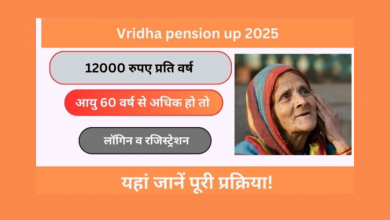Ireland Pension Increase Confirmed 2025

This Article will be really valuable for the Irish people; here they can learn about Ireland Pension Increase 2025: Increased amount, payment dates, and who is eligible.
Retirement is an excellent way to recognize years of hard work. It is critical to establish financial planning for the future, whether you envision an active lifestyle or simply wish to sit back and relax. It may be easier to acquire the funds needed for a comfortable retirement if you start contributing to your pension early.
Retirement planning is vital, but some people prefer to work longer once they reach retirement age. The government has proposed new legislation that would allow Irish individuals to work until they are 70 years old in exchange for a larger income upon retirement.
Ireland Pension Increase Amount
With the new changes, qualifying persons can choose to defer receiving their state pension at age 66 in exchange for a higher payment rate that will be adjusted until they reach the age of 70.
You will have an additional four years to accumulate social insurance contributions using these new options in order to meet the requirements. If a person turns 66 on or after January 1, 2025, they are eligible for the maximum state pension payment of €277.30. This works out to about €14,420 per year or €39.50 each day.
The following maximum rates are suggested for each year of deferral:
- When a person is 67 years old, €290.30,
- When a person is 68 years old, €304.80,
- When a person is 69 years old, €320.30, and
- When a person is 70 years old, €337.20.
Understanding Ireland’s Pension System
For those who qualify, the government gives a weekly state pension to adults over the age of 66. It is intended to provide a minimum income to help with living expenditures after retirement.
Those who have paid enough Irish social insurance contributions are able to receive the State pension (contributory) as early as age 66. The state pension is not means-tested, therefore you can get it regardless of your income source. If the contributing State pension is your primary source of income, you will most likely pay no taxes on it, even if it is taxable.
Who is Eligible?
To be eligible for the State pension, you must have started contributing to social insurance before reaching 56. Between the time you started working at an eligible rate and the age of 66, you must have made at least 520 full-rate social insurance payments and maintained an average of 48 paid and/or credited full-rate contributions per year.
If the aforementioned prerequisites are not met, you must have made at least ten paid and/or credited full-rate contributions on an annual basis between the start of your insurable work and the end of the contribution year before you reach 66.
Starting January 1, 2025, you can begin filing pension claims at any time between the ages of 66 and 70. Between the ages of 66 and the time you apply for your pension, you may be able to improve your eligibility for or rate of State Pension (Contributory) by making work-related PRSI contributions.
Last Words
Your payments affect how much you receive from the state pension, which might help you maintain a basic standard of living. A private pension helps you achieve your desired future by supplementing the €265.30 weekly state pension (as of May 2023) that you would receive.
By the end of 2023, the Irish government plans to adopt auto-enrollment, a change to the country’s pension system. Determining your pension obligations may be daunting, but you do not have to do it alone.
Thank you for reading this post on Ireland Pension Increase 2025 on our page; please come back for more global updates.



